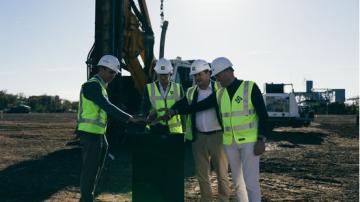Will 2022 be the year of the ecologization of the built environment?
No scientific analysis can be found anymore that dares to state the opposite: it is know or never. If we really want to stop 'climate change' then it has to be now and it has to be radical.
Given that the built environment is responsible for nearly 40% of global carbon emissions, reducing the environmental impact of real estate is not only important it is crucial.
Faced with this reality, the real estate sector will therefore have no choice but to accelerate previously launched initiatives and join forces with local and supra-local governments.
Translating the sometimes hollow slogans on fancy websites will be the concrete challenge for many developers. It remains a painful observation that...at the end of the day, the vast majority of consumers still choose a less sustainable project if it makes their purchase affordable in the (short term).
The solution will therefore only be possible if the licensing authorities also turn slogans into deeds. Every square meter that we gain in height can be compensated 1 to 1 at ground level. Today we see that, all too often, strengthening the core means that nothing will change in the cores and that no new land may be built on in the outlying areas. Result: rising land prices and a search by consumers to compensate this price difference in other areas such as...environmentally friendly building techniques. So the environment is the loser twice!
Translating visions and strategies into achievable goals requires transformative thinking from private companies, governments and consumers. Thus, the private sector must certainly and firmly dare to lead the way in addressing the climate change debate. The sector can only ask the government for efforts (e.g. fiscal) when we ourselves prove that we really mean it. Self-regularization by, for example, spontaneously and always assessing the environmental impact of a building material via a life cycle analysis is such an example. Avoiding composite materials, taking into account reuse possibilities, opting for recycled and recyclable materials, preferably use natural materials,...without this being imposed by law.
But the citizen must also ask / force the government to set an example itself. In Flanders, hectares of concrete deserts have been built by the government. Sometimes these are also called playgrounds. It is incomprehensible that these are not immediately demolished and that beautiful and pleasant green and especially water-permeable playgrounds are created. Budgetary restrictions are apparently reasons for the local authorities not to immediately insulate all existing buildings to the maximum and to provide them entirely with their own generated green energy. That same government, however, is somewhat less understanding of private owners....
The government should oblige itself to post the ecological score of every government building at every entrance. But the same schools could also be required to display an eco-score on every publication of their school.
So there will be no lack of ambitious targets for everything and everyone in 2022.
Björn Verhoeven
General Manager


